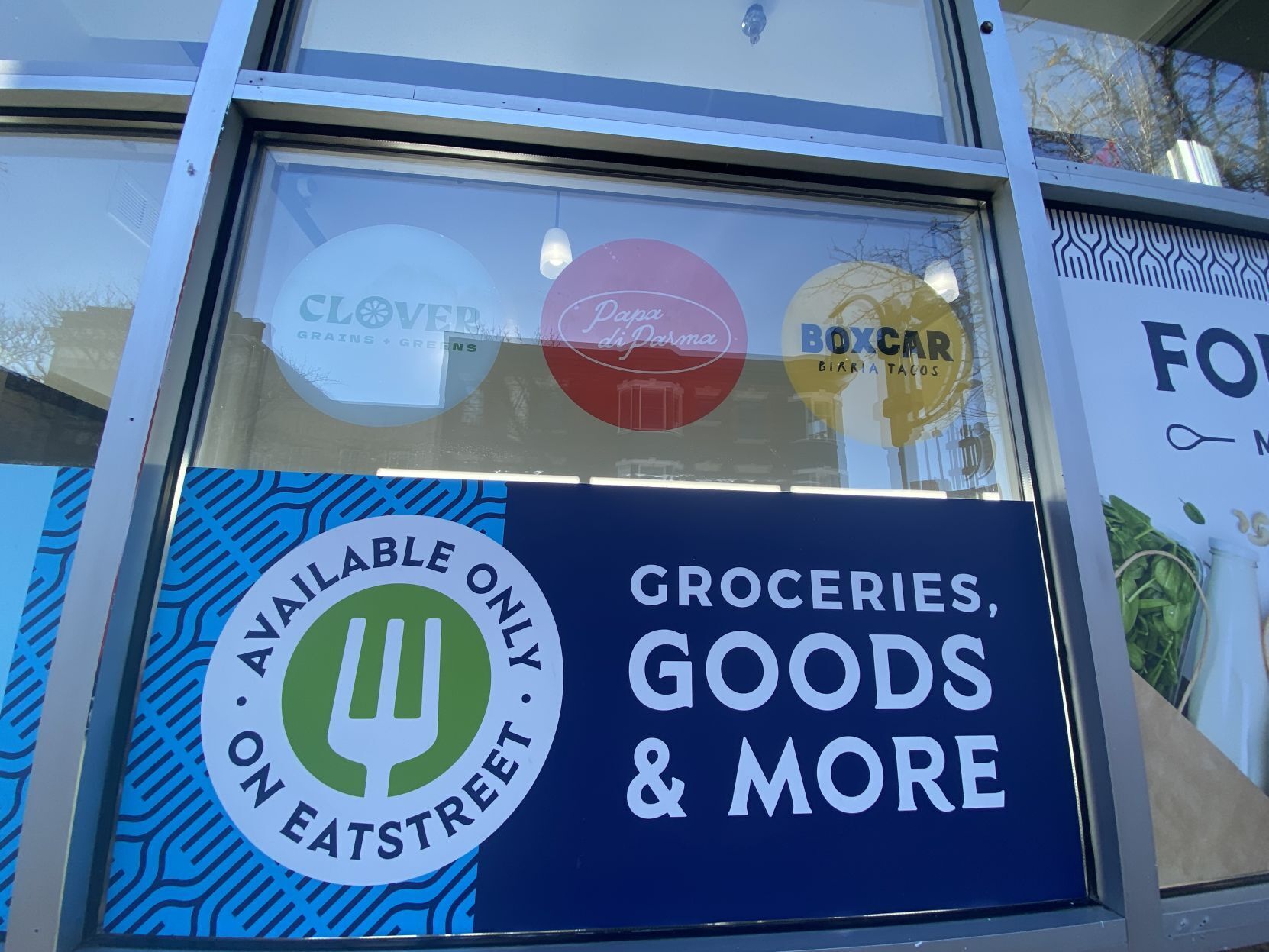
EatStreet, the Madison-based online food-ordering company, appears headed toward foreclosure or insolvency, according to court papers filed Dec. 9.
The filings show the company is no longer able to pay a $1.2 million settlement in a class-action lawsuit brought by delivery drivers, or at least EatStreet’s owners need more time to pay.
The company’s legal problems date to 2020, when Kristoffer Martin, a former EatStreet delivery driver, and two other drivers, sued in federal court over alleged wage theft.
The drivers contended that EatStreet violated the Fair Labor Standards Act and Wisconsin wage law when it “failed to reimburse delivery drivers for vehicle and mileage expenses and when it used drivers’ tips to meet minimum wage requirements.”
In an August settlement, after three daylong mediation sessions and several months of negotiations with a former magistrate judge, EatStreet agreed to pay $1.2 million, including $413,333 in attorney fees. The amount was a fraction of what the plaintiff’s attorneys were seeking, according to a court document.
People are also reading…
During those sessions, EatStreet shared financial information that persuaded the mediator that the company might not be able to pay the larger judgment sought by the plaintiffs.
Then, in a motion filed Dec. 9, EatStreet’s lawyers notified the court that the company no longer believes it will be able to honor the agreed-upon payment obligations.

EatStreet CEO Matt Howard was one of the speakers at the Greater Madison Chamber of Commerce’s IceBreaker luncheon in 2015.
“Over the last three months, EatStreet’s financial circumstances have deteriorated rapidly due to multiple factors,” according to the recent filing.
EatStreet is asking for more time to negotiate another solution and promises to update the court by Feb. 13.
The company was still operating as of Friday, delivering food from 185 restaurants to customers in the Madison area.
Humble origins
Matt Howard, EatStreet’s chief operating officer, and Alex Wyler, its chief technology officer, founded the company in 2010 in a dorm at UW-Madison, and it has become one of the largest online and mobile food ordering and delivery services in the United States.
Its website shows EatStreet is in about 250 cities, connecting customers to about 15,000 restaurants.
In late 2017, Howard and Wyler were named to Forbes’ 2018 “30 Under 30” list, which recognizes high-achieving young entrepreneurs and philanthropists.
Text messages and calls to Howard and Wyler weren’t returned Thursday or Friday.
Loan default
In September, EatStreet’s main creditor said the company was in default of its loan and negotiated with the company so it could continue operating, documents show.
At the same time, in the filing, EatStreet’s owners said until October they were talking with a national entity that expressed interest in buying it or funding it, but that the deal no longer appears likely.

Also in October, EatStreet shut down operations of HungerHub, a commercial kitchen and grocery concept it started late last year with three Madison “hubs”: Forkful Market by EatStreet on State Street, and hubs on the East and West sides.
HungerHub had to lay off a number of employees, given its continued inability to generate a profit, the documents say.
More trouble
Late last month, EatStreet learned that it had been sued by several Dane County landlords, the filings show.
According to court records, as of Dec. 8, EatStreet’s primary creditor indicated it intended to move to foreclose on EatStreet’s remaining assets, which serve as collateral for the company’s outstanding debt.
“EatStreet remains in negotiations with its lender, but given the dire financial situation at this stage, EatStreet’s lender is likely to initiate a foreclosure action (or some other insolvency proceeding) by the end of the year,” the records say.
In asking to renegotiate the settlement with the former drivers, the company also said it was anticipating a substantial, eight-figure payment from the Internal Revenue Service based on a pending application for an Employee Retention Credit.

According to federal Paycheck Protection Program data, EatStreet, based at 316 W. Washington Ave., got a $3.6 million COVID-related PPP loan from the Small Business Administration in April 2020.
As of June 2021, the loan’s status was forgiven from repayment under PPP guidelines, according to information accessible on the website of ProPublica, the investigative journalism nonprofit.
Driver’s story
“Working for them was fairly easy,” at first, said Martin, 36, the initial plaintiff, who lives in Eau Claire, and worked as a driver for EatStreet from November 2018 to November 2019.
He said early on, the company kept its word that drivers wouldn’t have to deliver outside of Eau Claire. “We had a very defined map of our delivery area, but they eventually changed that and we were forced as drivers to deliver well outside of our delivery area.”

A delivery driver puts an order from a local restaurant into his car.
Martin said he first became suspicious of the company on Christmas Day in 2018 when he had one delivery, but it was 12 miles away in Fall Creek.
He said the way EatStreet operated then, drivers only got paid for the time it took to get to the restaurant from wherever they were, and then to the delivery location. They weren’t paid for the time it took to return from the delivery zone.
“By sending me out to Fall Creek, I was 30 minutes out, had lost effectively an hour or so, a half an hour of pay. So, for that one delivery I made $0, actually negative amounts of money.”
Over the year, Martin said, he realized the company was “stealing wages,” and with the accumulation of mileage and depreciation on his vehicle, he said his hourly wage was well below the guaranteed $10 an hour he was promised by the company. “It was even below minimum wage.”
So, in March 2020, he filed the class-action suit. “If they were doing it to me, then they were doing it to other drivers,” Martin said.
He said he couldn’t comment on the development that EatStreet can’t honor its settlement obligations now.























